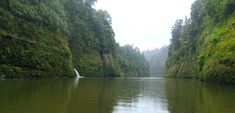Abstract:
Most jurisdictions distinguish between the status of legal subjects (“persons”) and legal objects (“things”). Legal subjects are addressed with rights or duties, legal objects are not. The dichotomy of legal subjects and legal objects has recently gained new attention in the context of regulating new technologies in the European Union. It has been suggested that robots and similar machines should be treated as legal subjects rather than legal objects, because they fulfil their tasks autonomously. Although the legal ramifications of such a status change have been discussed extensively on a theoretical level, there has been little effort to test these discussions’ claims against a specific example: a specific status change in a specific jurisdiction with specific consequences for that jurisdiction. Aiming to fill this gap, Thomas Buocz analyses two historic examples of status changes, not in the field of technology but in the field of nature. Te Urewera Act 2014 and Te Awa Tupua Act 2017 have extended the circle of legal subjects in Aotearoa/New Zealand to two new entities, a former national park and a river. Thomas Buocz discusses the consequences of these two status changes for Aotearoa/New Zealand’s legal system. What problems could be solved through the status change? What problems remained? Were new problems created? How do the two newly created legal persons fit in with the rest of the legal system? In his talk, Thomas Buocz attempts to show that discussing these questions can also teach insightful lessons about what status changes can and cannot do for the regulation of new technologies in the European Union.
For further information see the official invitation by the New Zealand Association of Comparative Law.
Thomas Buocz currently completing a research semester at the Law School of the Victoria University of Wellington, New Zealand to optimise his PhD thesis. There, he is investigating the concept of legal personhood and compare its application to machines and natural objects. His research year is being funded with a Marietta Blau Grant by the Austrian Federal Ministry of Education, Science and Research.

